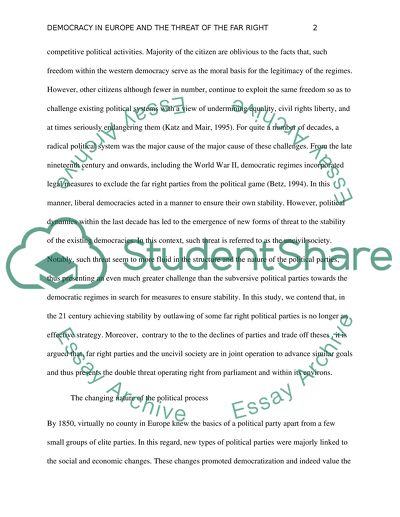Cite this document
(“How Serious a Threat to Democracy Is the Far Right in Europe Today Essay”, n.d.)
How Serious a Threat to Democracy Is the Far Right in Europe Today Essay. Retrieved from https://studentshare.org/history/1478555-how-serious-a-threat-to-democracy-is-the-far-right-in-europe-today
How Serious a Threat to Democracy Is the Far Right in Europe Today Essay. Retrieved from https://studentshare.org/history/1478555-how-serious-a-threat-to-democracy-is-the-far-right-in-europe-today
(How Serious a Threat to Democracy Is the Far Right in Europe Today Essay)
How Serious a Threat to Democracy Is the Far Right in Europe Today Essay. https://studentshare.org/history/1478555-how-serious-a-threat-to-democracy-is-the-far-right-in-europe-today.
How Serious a Threat to Democracy Is the Far Right in Europe Today Essay. https://studentshare.org/history/1478555-how-serious-a-threat-to-democracy-is-the-far-right-in-europe-today.
“How Serious a Threat to Democracy Is the Far Right in Europe Today Essay”, n.d. https://studentshare.org/history/1478555-how-serious-a-threat-to-democracy-is-the-far-right-in-europe-today.


